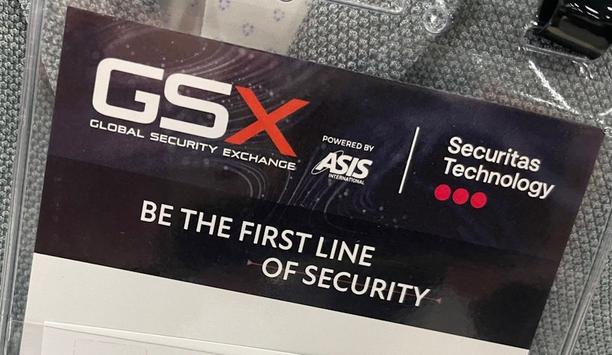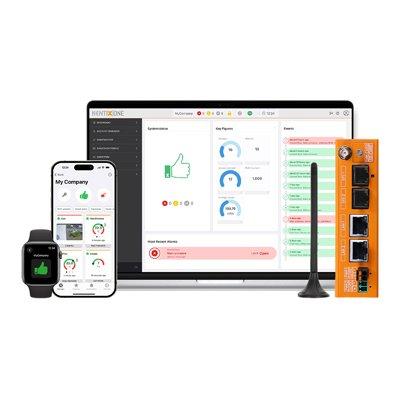Highlighting China’s Video Surveillance Giants, this is the second in a series of articles on the growing international presence of China’s top three video surveillance/CCTV companies. Check out articles on Hikvision and Uniview, which are also part of the series.
Dahua Technology Co., Ltd. is a Chinese video company with roughly 75 percent of its revenue coming from the huge domestic Chinese market. The rest reflects Dahua’s growing international presence in the video surveillance/CCTV market. Dahua's technology breakdown for overseas in 2014 is about 20 percent analogue, 50 percent IP, and 30 percent HDCVI, which is a new higher-definition analogue system catching on especially in the Southeast Asia and Latin American markets.
Dahua standard for HD video transmission: HDCVI
Developed in-house by Dahua, HDCVI (High Definition Composite Video Interface) is a standard for HD video transmission over coaxial cable that allows long-distance HD transmission at a lower cost. The technology can render either 1080p or 720p formats to provide megapixel and uncompressed image quality.
Dahua introduced the concept of HDCVI about two years ago, and the first products shipped last September (2013). The newer technology, which provides HD quality using existing UTP cabling, is also catching on in Europe, especially Germany, Spain and Italy, where HDCVI provides an easy way to upgrade from standard definition (SD) to high definition (HD) using existing infrastructure. Dahua’s HDCVI fibre transceivers, matrixes and converters enable the technology to leverage fibre optic cabling to transmit signals in large-scale and longer distance scenarios. HDCVI has been embraced by the HDcctv Alliance, a non-profit, global consortium that develops and promotes HDcctv standards.
HDCVI has been proven reliable and workable and Dahua has completed several HDCVI projects around the world |
Tim Shen, marketing director, Overseas Business Center, Dahua Technology, says that testing has confirmed the good HD performance and image quality of HDCVI, which provides the benefits of HD but is more affordable than IP solutions. Although the market share is low, HDCVI is growing, says Shen. The industry has definitely noticed the new HD alternative, which Dahua has been promoting for five to seven months as an available, affordable solution for analogue HD. “We are showing the options and solutions to the market. Meanwhile, we hold an open attitude to manufacturers to use HDCVI technology,” says Shen.
In general, HDCVI's ease of installation makes it preferred in regions of the world that have a less-skilled base of installers, says Shen. The technology also lends itself to small and medium sized applications, especially if the video system does not need to integrate with other systems. It's an easy install in the casino and banking markets, for example. HDCVI has been proven reliable and workable and Dahua has completed several HDCVI projects around the world. Dahua has shipped "more than 1.5 million" HDCVI units to date, says Shen. “We have a clear roadmap of HDCVI and believe the technology will have greater acceptance in the world,” says Shen.
Promoting IP surveillance and 4K camera technology
On the IP side, Dahua has been involved in many large citywide projects. Dahua is also among the leaders in emergence of new 4K camera technology in the IP market, and is shipping its first 4K units in August (2014). Incorporating 4K into HDCVI is also in the supplier’s technology roadmap. Highlighting the company’s investment in new technologies, Dahua has over 3,000 research and development (R&D) engineers working at its headquarters. The company’s development of HDCVI reflects its commitment to technology leadership.
The latest IHS Research market share report places Dahua as number two in the global market, right behind Hikvision, another giant Chinese manufacturer, and ahead of perpetual industry leader Axis. In all, Dahua sells video equipment into 140 countries.
The latest IHS Research market share report places Dahua as number two in the global market, right behind Hikvision |
Shen rejects any talk in the market about Chinese cameras having lower quality. “If we were low quality or offered bad service, why would people buy?” he asks. Shen says Dahua and the other top Chinese camera manufacturers are working to overcome the lower-quality stereotype of Chinese products. “We are the exception,” he says. “Many of manufacturers are improving a lot.”
Dahua has increased its presence at global trade shows, with large exhibits at ISC West 2014 in Las Vegas and IFSEC in London. Shen says the company attended IFSEC because of the large number of European customers visiting the show. Dahua’s higher profile is intended to reflect the Chinese manufacturer’s commitment to support either its OEM or channel partners and to provide better service.
Dahua plans to set up a support office in the United States to sustain sales through its OEM/distribution agreements. The facility will include stepped up technical support and a delivery warehouse, says Shen, and it will also support sales of Dahua-branded products in Canada.
Discover how AI, biometrics, and analytics are transforming casino security















































